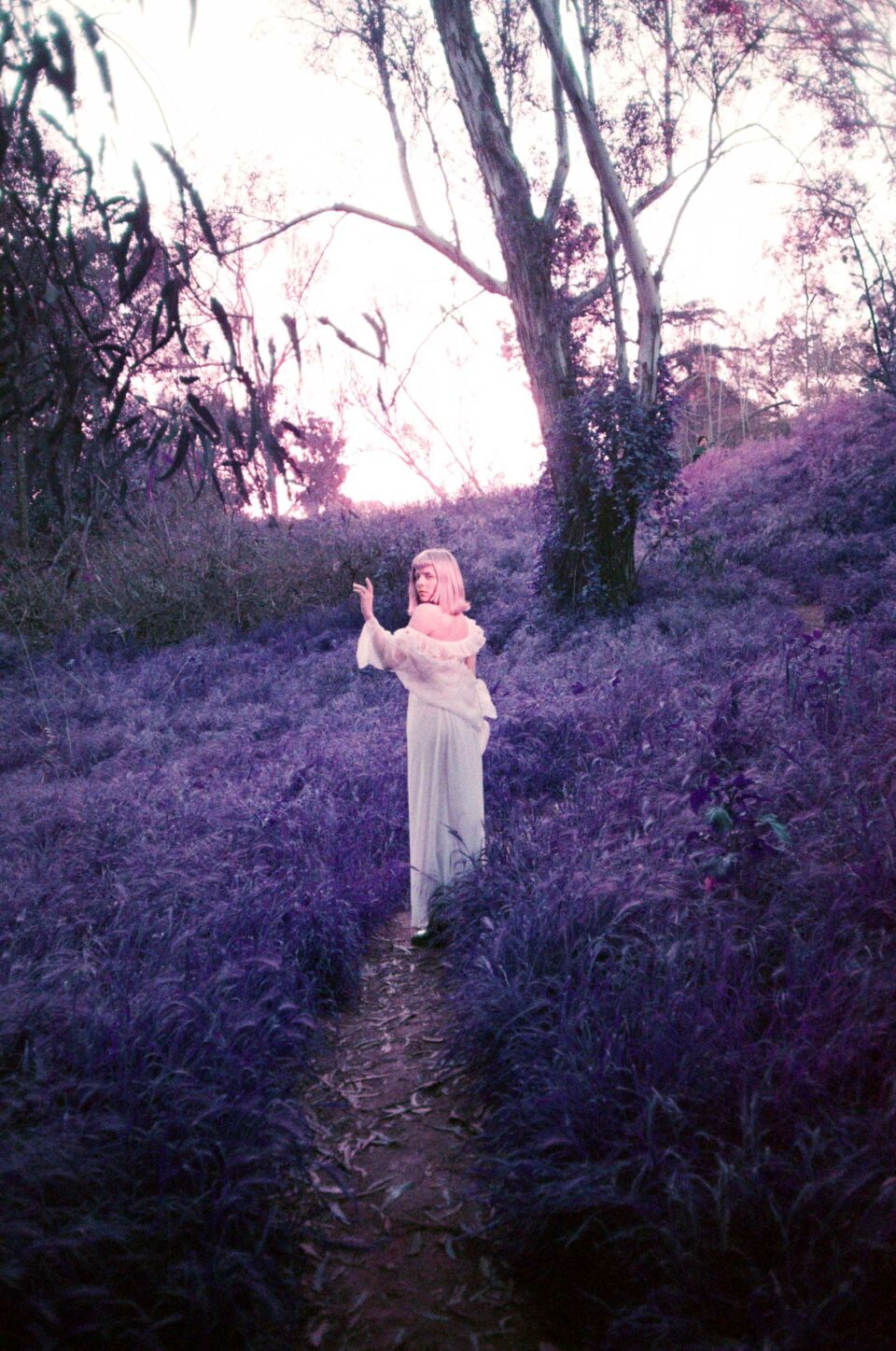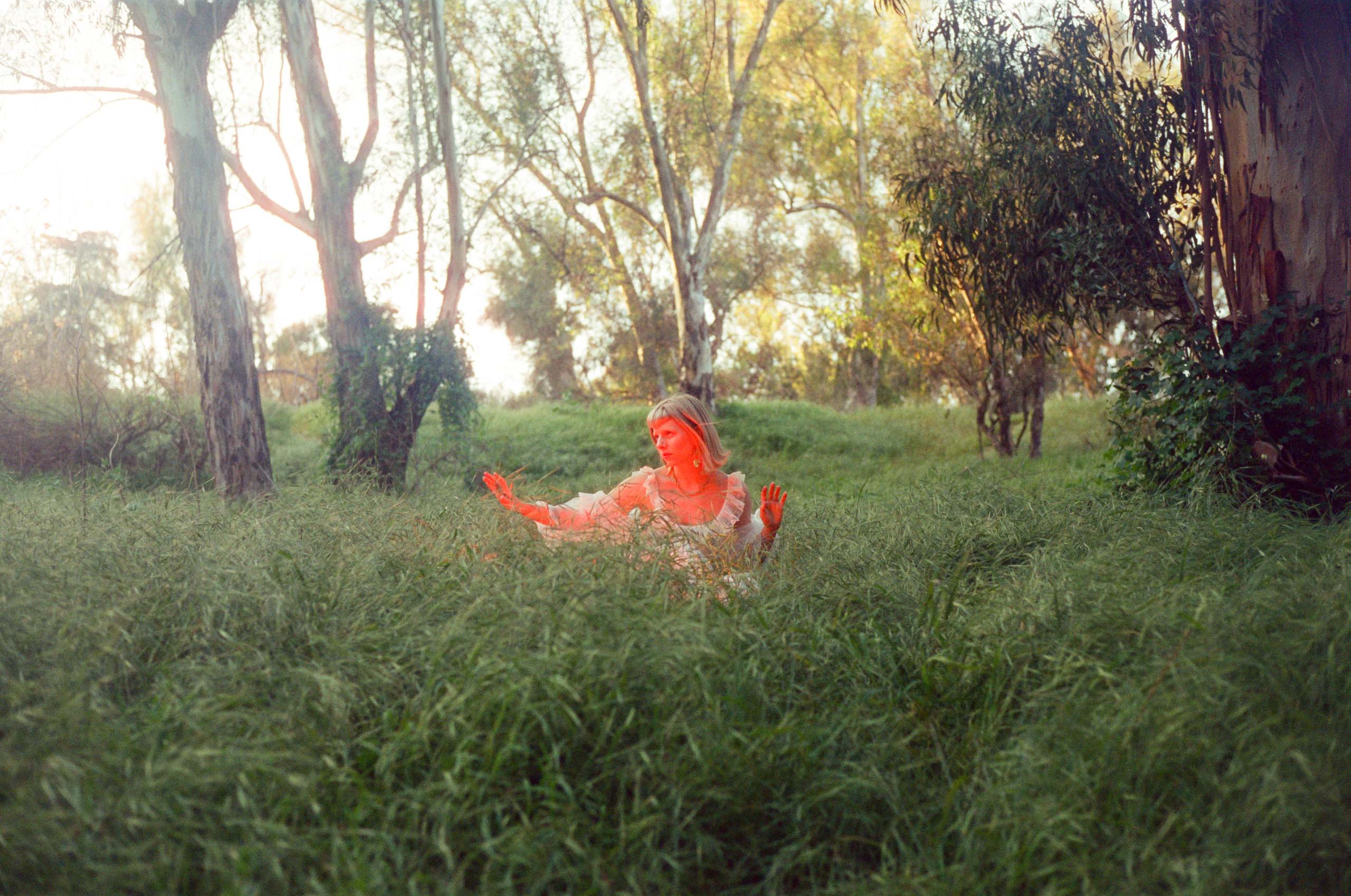“We have really primitive ways of achieving peace,” Aurora Asknes asserts. “I don’t understand how any of the things we’re doing now to each other is the right way to pave forward for a peaceful future.”
Zooming in from Universal’s label office in England, the Norwegian artist known mononymously as AURORA takes some time to chat about her latest album, What Happened to the Heart?, and the questions that fueled it. “Every night before I went to bed, I thought about what I was reading about in the world—what’s happening now in Palestine, for example. Different things that no matter who you are, where you’re coming from, it’s incredibly heart-wrenching to watch happen in a modern world. It seems like a very strange solution that can’t possibly have been made by the heart. It’s a question I kept coming back to with many of the pains this year in the world: What happened to the heart in this situation?”
In early 2022, AURORA released The Gods We Can Touch, a cornucopia of playful, sometimes mischievous synth-pop and steel-laced rock music that recalled both Fleetwood Mac and Kate Bush. A few months later she came across a letter from Indigenous activists from Brazil that calls out the “crisis of capitalist civilization” that values profit over a dying Earth. These fierce words planted many questions in AURORA’s mind, one of which she used as the title of her latest project.
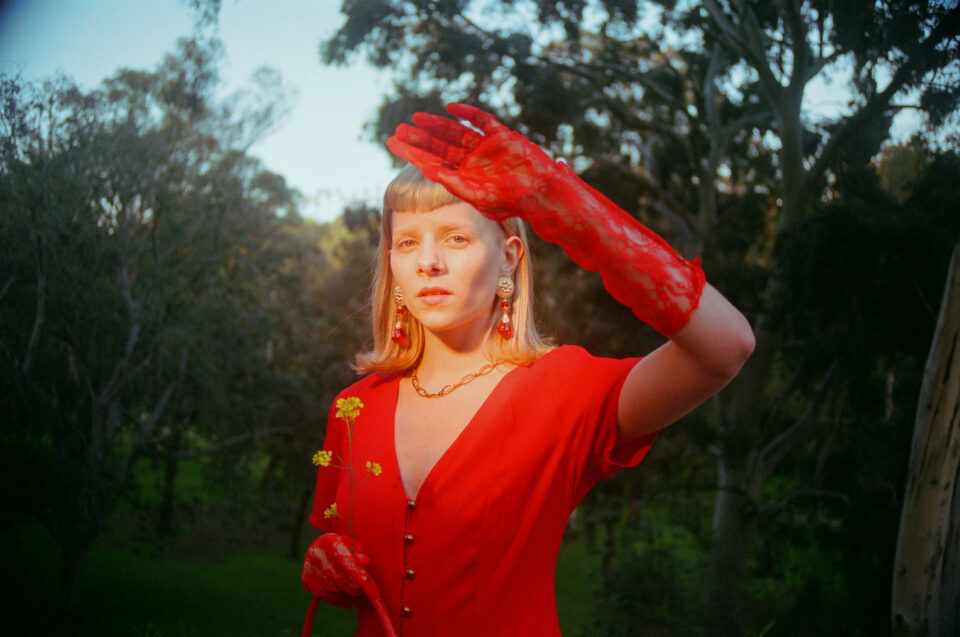
While making this album, AURORA also took into account the history of the heart. In ancient times, the heart was the key to all life. She points to her chest emphasizing it as “the origin of intuition, intention, spirituality, love, interconnectedness.” Over time, philosophers and scientists evolved our understanding of the organ as an anatomical force that carries oxygen throughout the body. “We moved all of these attributes that we used to feel in [the heart] up to the mind,” she explains. “I think emotions turn sour when the mind stops our heart from feeling them. When we get embarrassed for being a bit irrational or overly emotional. I think that’s a big part of the process of being human.”
What Happened to the Heart? sounds as if it’s willing to take a bullet to save a loved one. It’s fierce and forthright, moving through shadowed synth-pop to Celtic-inspired revelries frayed with distortive guitars. AURORA’s voice is a bright, mercurial guide that hungers for safety, touch, and love alongside us in nefarious terrain. The album breathes and bleeds; it longs to dance, heal, and keep the soul alive. It reminds us that pain can’t be ignored.
With the album out this week, read on for more from our conversation below.
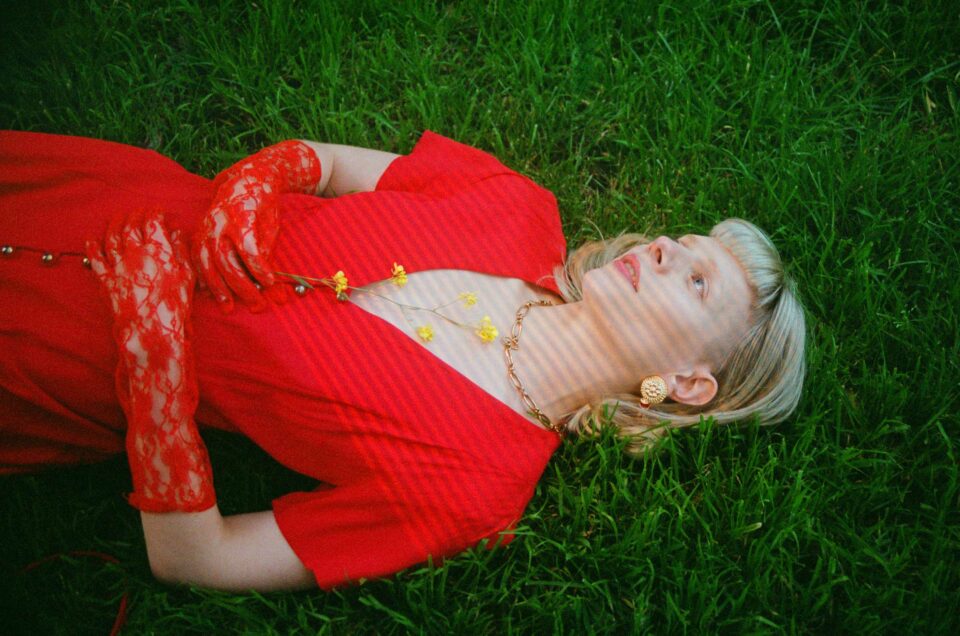
What was the seed for this album?
Well, it started with pain, I guess. A deep-rooted pain that’s in the world, in the way humans behave again and again. Whoever we’re hurting is always someone who can’t really protest against us—like Mother Earth, or any underdog in the world. I read this letter written by Indigenous people all around the world called “We Are the Earth” pleading everyone to act more with the heart and less with the mind. And obviously attributes of the heart like empathy and emotion are looked down upon when it comes to leading your country and making decisions on behalf of the world, which to me is so odd. And everything that’s feminine, even, isn’t considered suitable when it’s just what the world needs.
So that’s where the title came from: Why did we stop valuing the attributes of the heart and the magic of it? I think it’s painful that we act like this. It’s painful that we’re still bleeding for the same things as we were almost a hundred years ago.
Did you feel like writing this album helped with that pain?
As a woman in this world you can, in a way, resonate with the pain Mother Earth is going through. Sometimes you get hurt by someone just because they can, and I rage on behalf of all of us because there are people out there battling battles that I can’t even understand. Writing this album has helped me make sense of that pain and anger, making sure I choose the right one out of the two paths: self-healing or self-destruction. We choose self-destruction so often, but pouring pain into art is a very good, self-healing way of dealing with it. We walk past each other in the street with so much trauma, women walking past men who remind them of the predators in their lives. There’s so much pain everywhere. We need to figure out where to put it and how to work around it. No, through it, not around it.
“Everything that makes me human I access when I write in case it can help me make the song even more beautiful and authentic and diverse. It can be a very heavy process sometimes.”
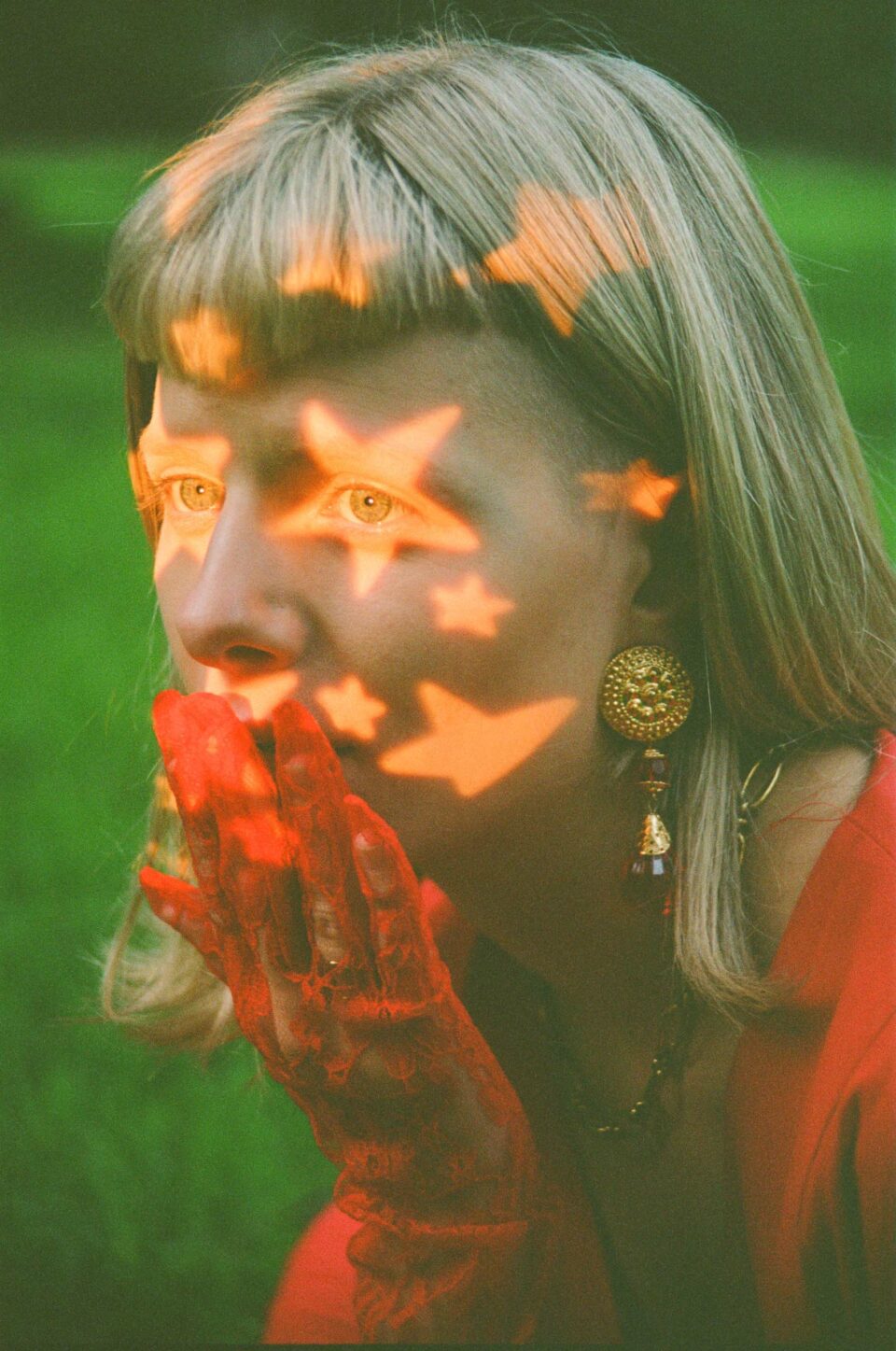
This album feels like it’s trying to find some balance between the present moment and the history of everything. How do you keep yourself grounded while also contemplating the past?
I’m gonna refer to Indigenous cultures, because what the newer world has forgotten to do is to actually connect to anything else besides the present moment, and therefore they also forget to even enjoy it. What did the people before you do to get you here? And what thing can you do today that will mean something to the people after you? Trying to understand the beauty in that and the importance of it—to live beyond yourself—really helps me enjoy my future moment as a gift, because you see it differently.
Do you have any specific rituals or processes to ground yourself?
When I paint, I feel very at peace. It helps me connect my mind and my body in a way that’s beyond who I am—or what I am. It’s important to be outside, under an open sky. I sit and I put on some music that feels like you’re in a movie, and then let your mind be inspired by that. I don’t know if it’s a ritual, but even to look at people and pretend you’re on the outside looking in at something. Every little thing people do that’s normal suddenly becomes very beautiful. You can learn to fall in love with the world and people again. Because we are truly beautiful. A part of us has been suppressed for years, and we need to figure out how to get it back. The world has made it impossible for many of us to have more than just enough, and we’re constantly striving for just enough all the time. And it’s exhausting.
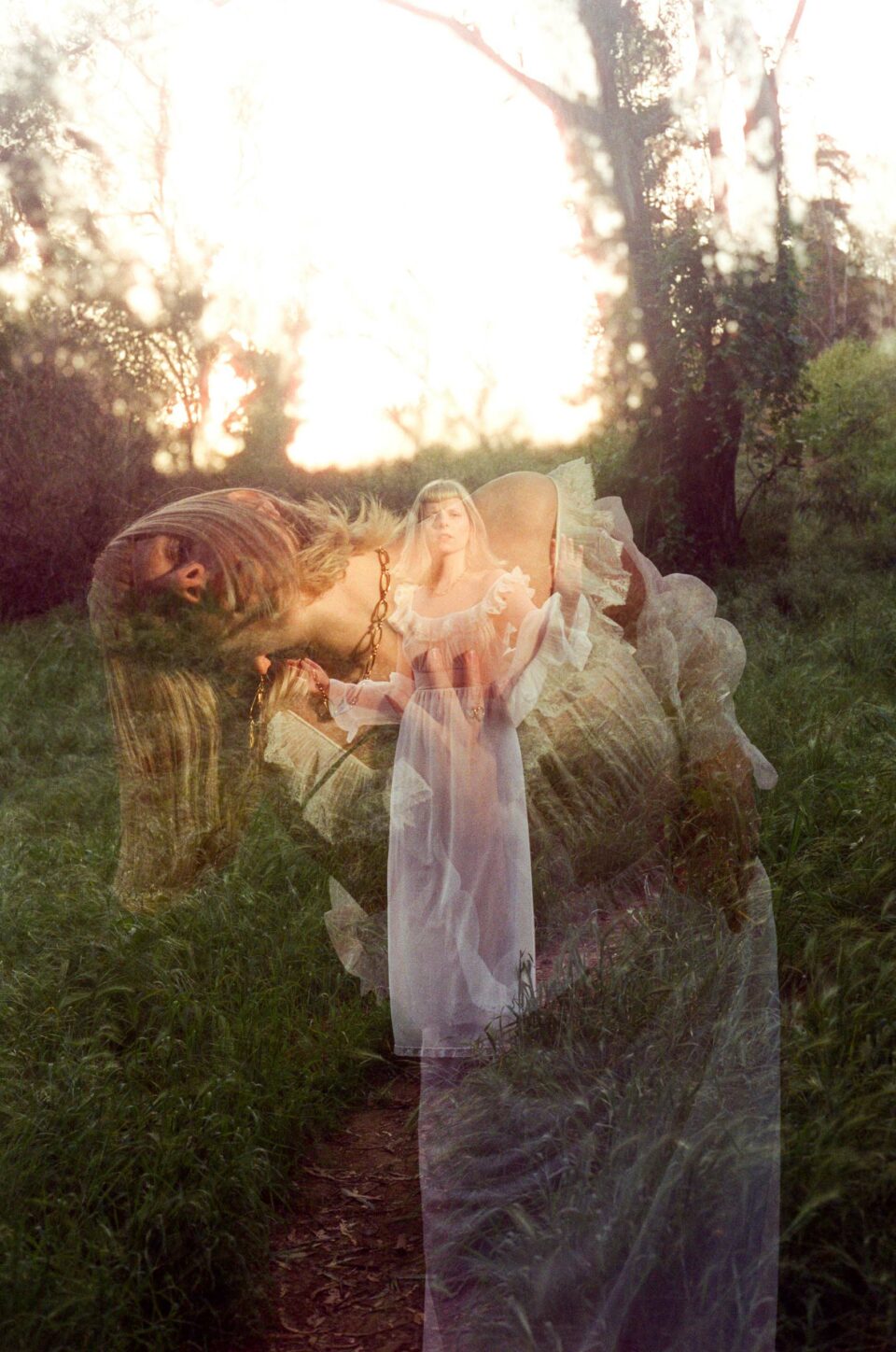
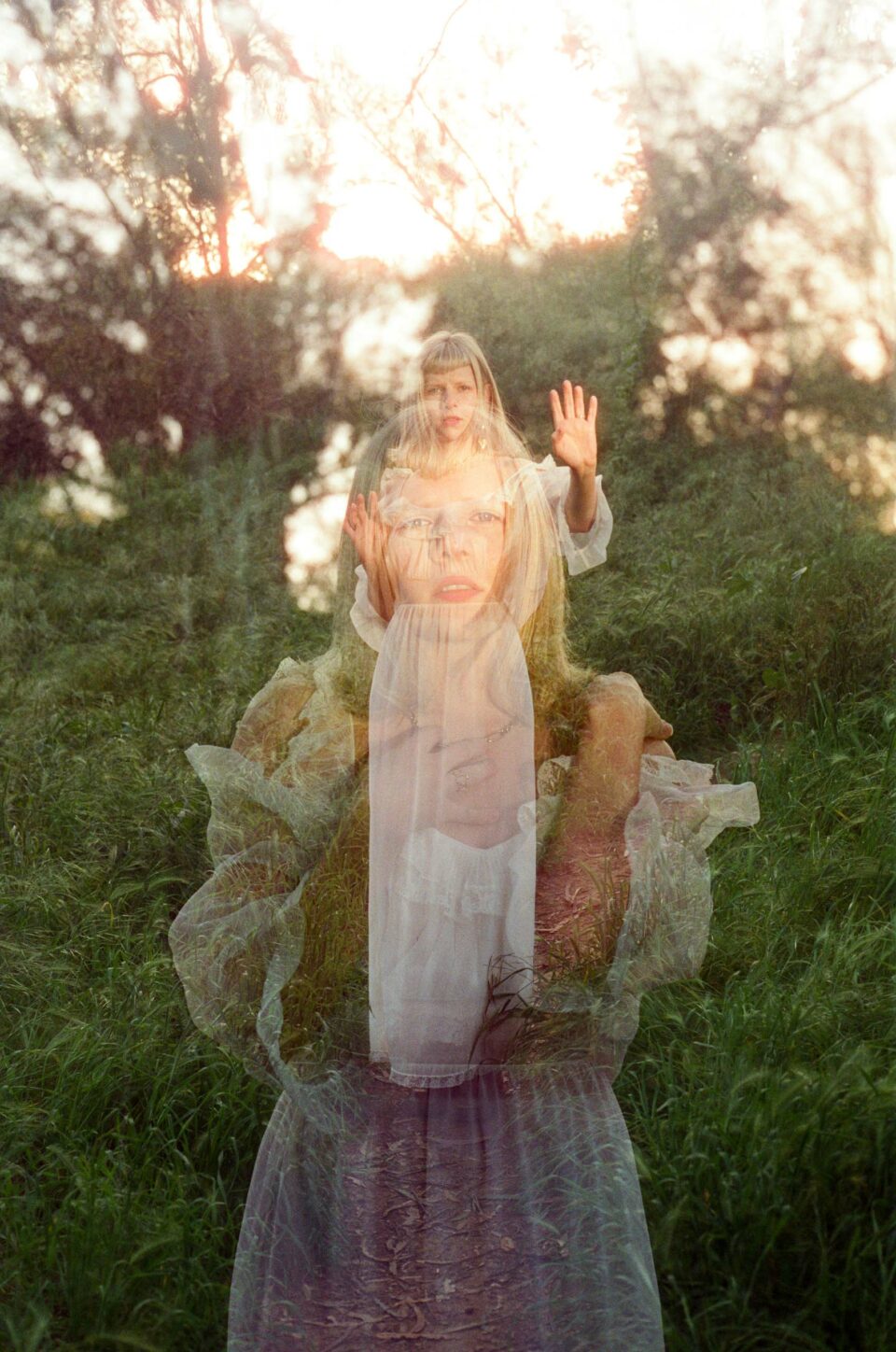
“I was inspired by how I imagined everything that’s within us to sound—the bones, the pulse, the blood, the breath. But also, what happens when we remove the soul from the body?”
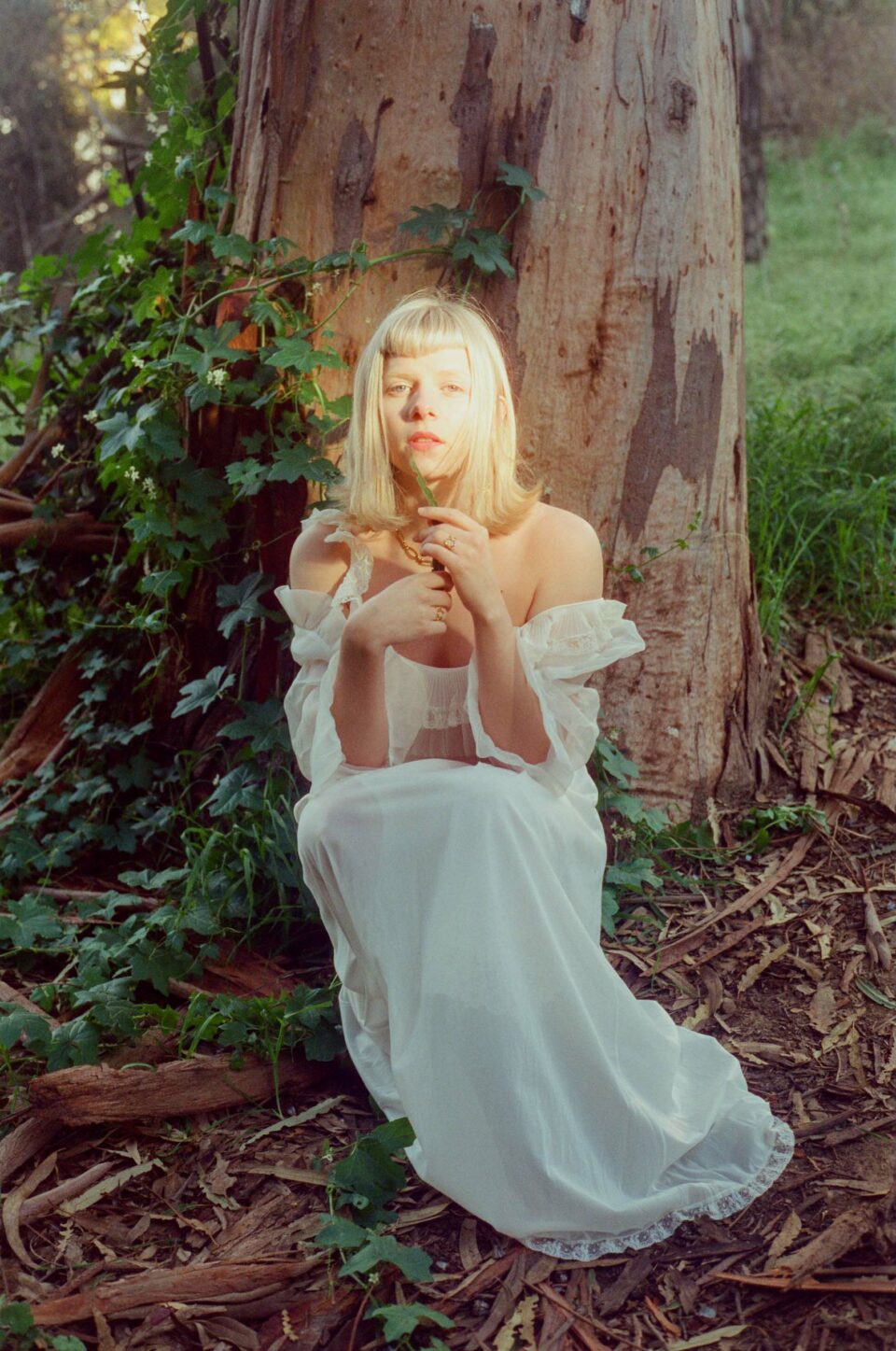
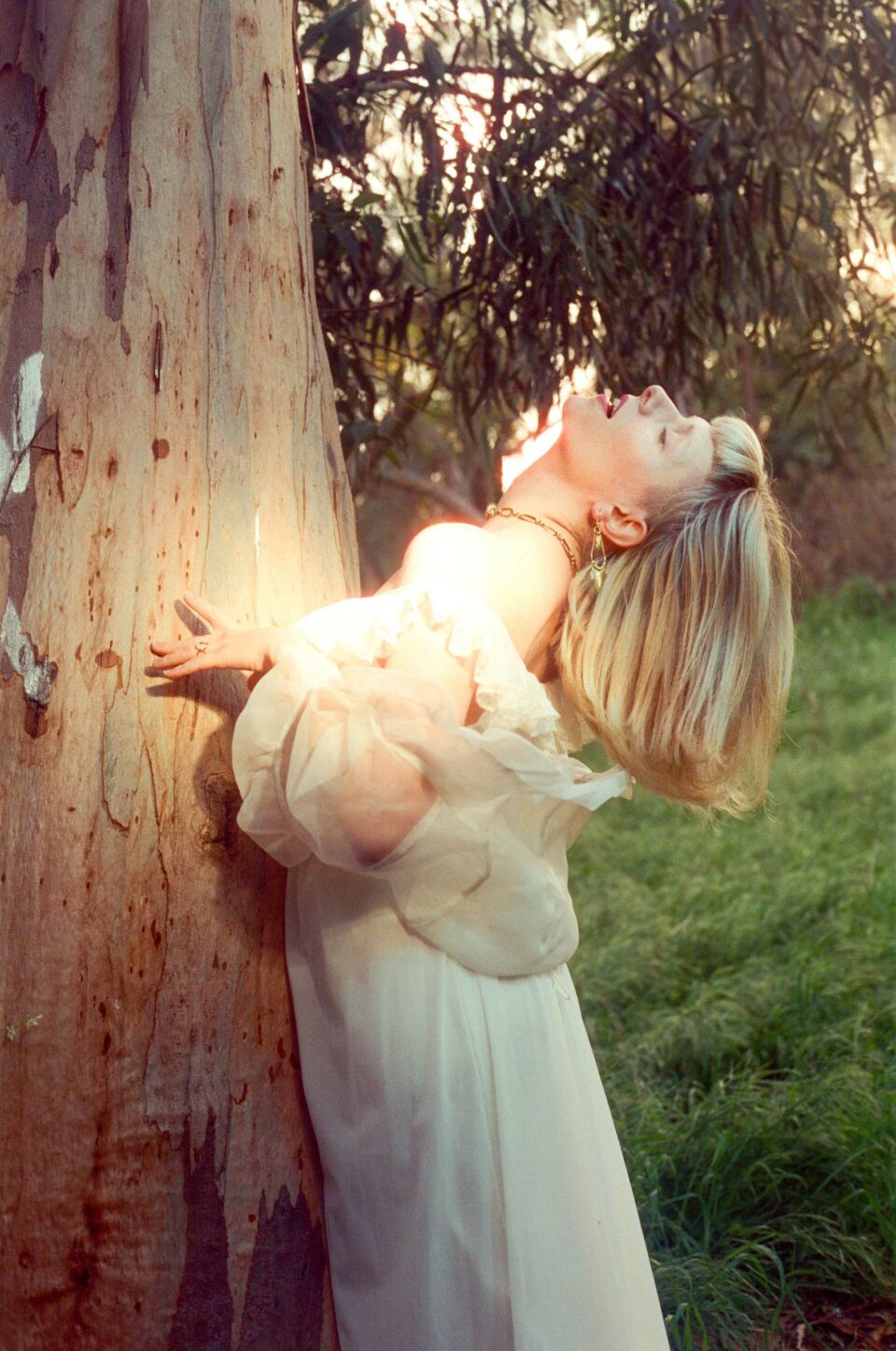
I read something about how you wrote and recorded a lot of the songs in an unsafe environment. Could you elaborate on what that means?
When I open myself to write it feels like a very playful thing sometimes, but often very vulnerable. I open up the door to every beautiful and awful thing I’ve seen, every trauma, every ounce of happiness that I’ve had. Everything that makes me human I access when I write in case it can help me make the song even more beautiful and authentic and diverse. It can be a very heavy process sometimes. To do that in any other place than somewhere where I isolate myself feels very unsafe. So I’ve been writing a lot in different cities, in loud places while being in touch with the world, while reading the news. So it’s been a new way for me to write—more chaotic. And the album has a very interesting process that begins more peacefully, and then the apathy kind of grows into despair and then anger and then a wound. Like always, it turned out to be just pain, not anger at all.
I’d love to hear about the last two songs, because I feel like they specifically touch upon what you’re talking about.
When you’re panicked or desperate, the world loves telling you that you need to calm down. So I wanted to let the music really grow and explode before I took a breath again. [“The Blade” and “My Body Is Not Mine” have] a lot of female rage, I think. You have to let yourself explode a bit. The last one is the aftermath of daring to really go into the roots of the problem, acknowledging where it comes from and allowing yourself to be angry, as well. And hurt. And it’s only after you realize that that you’re allowed to start the healing process. The last thing I say in the album is, “We both need to tend to our invisible wounds.” The end of the album is the start of the real journey, I think. It’s an open ending.
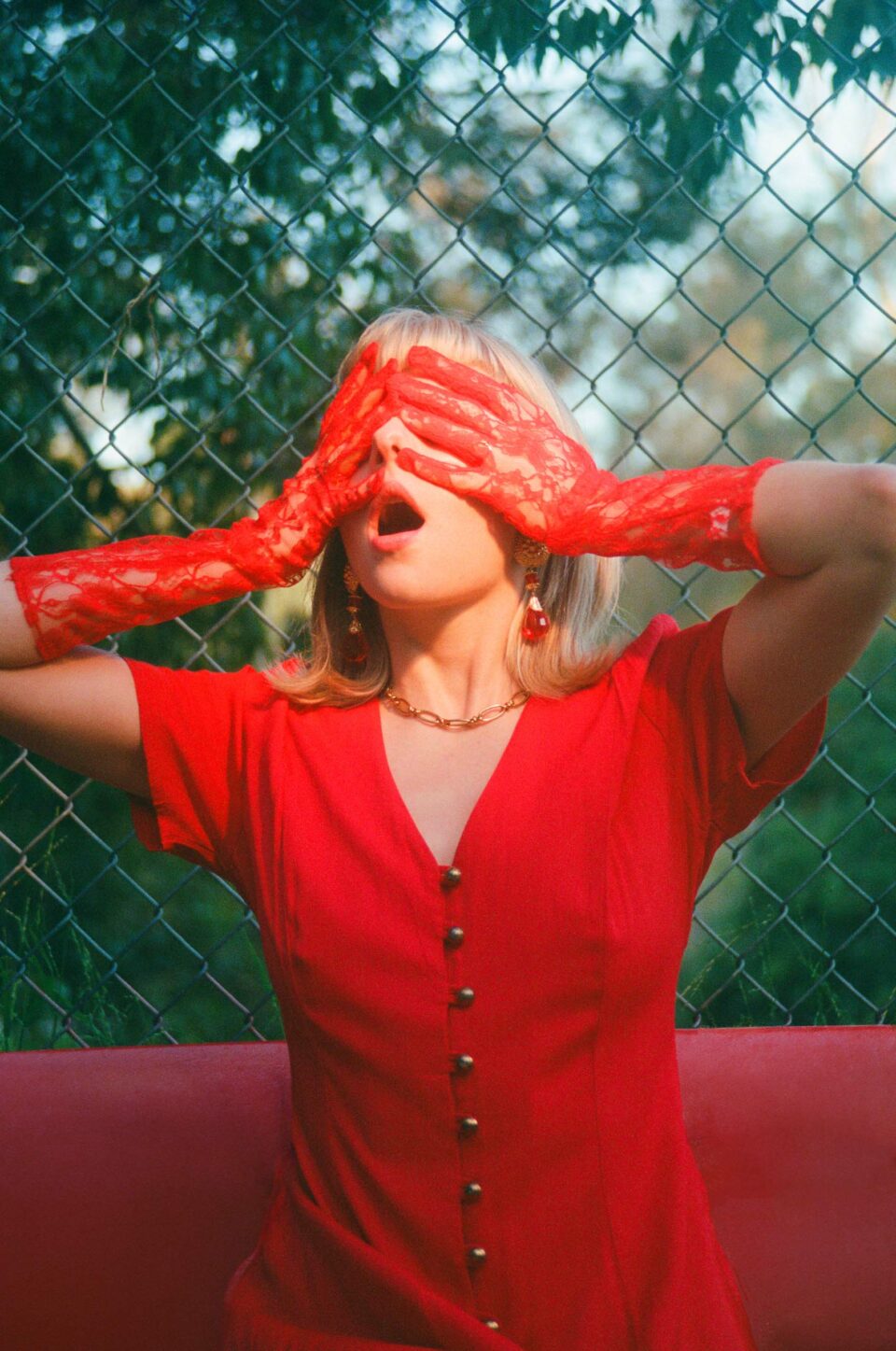
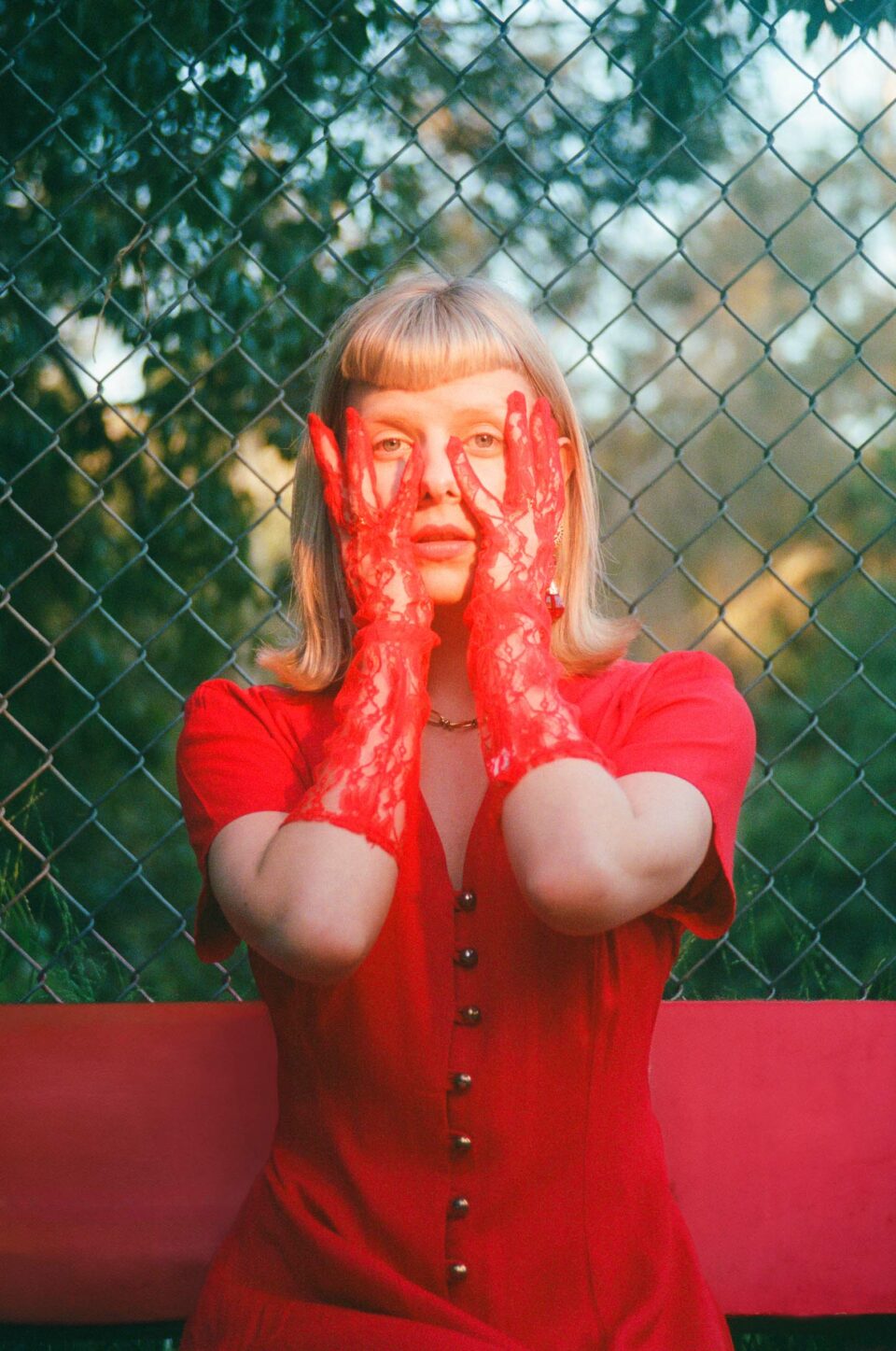
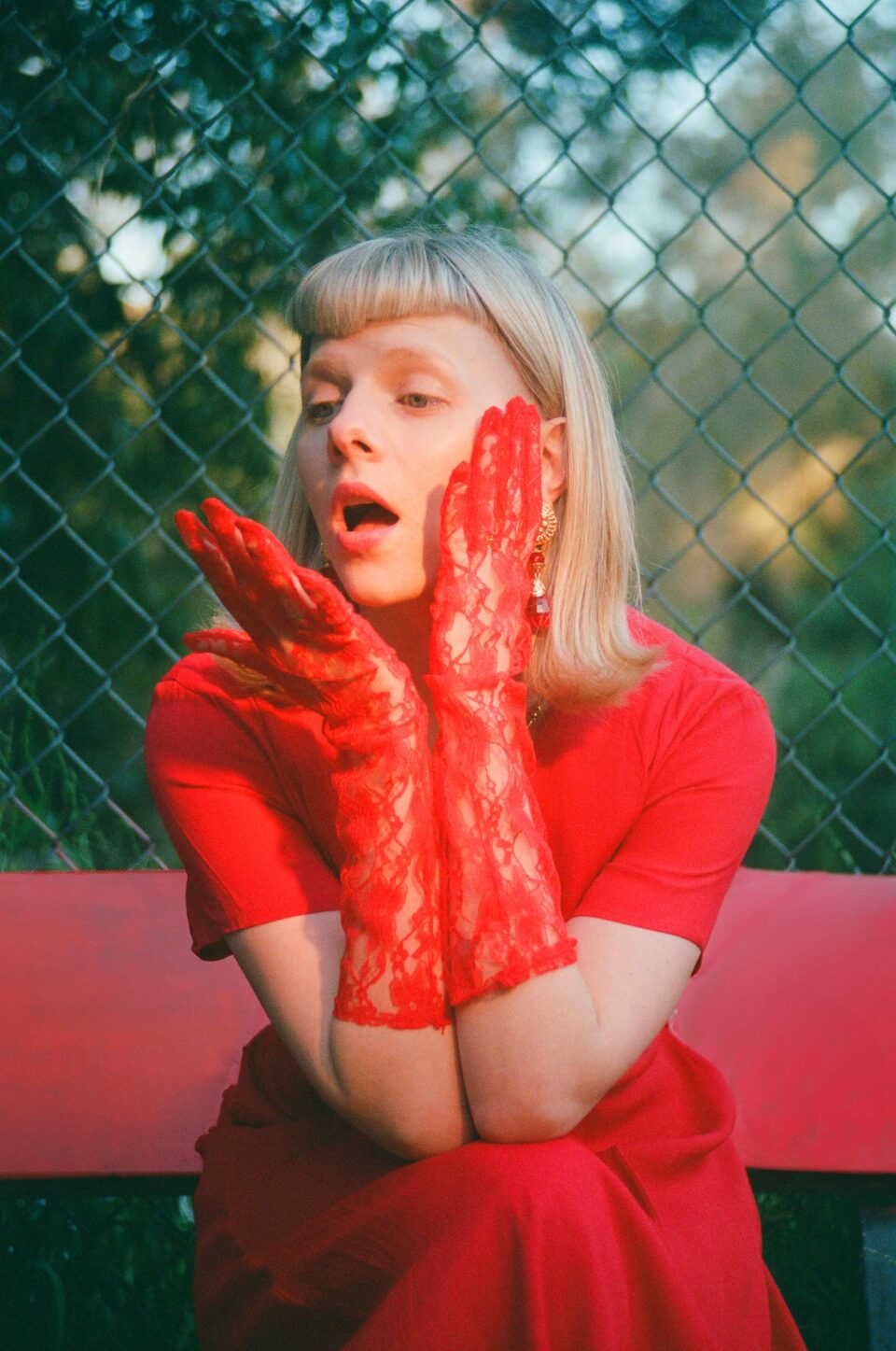
“The end of the album is the start of the real journey, I think. It’s an open ending.”
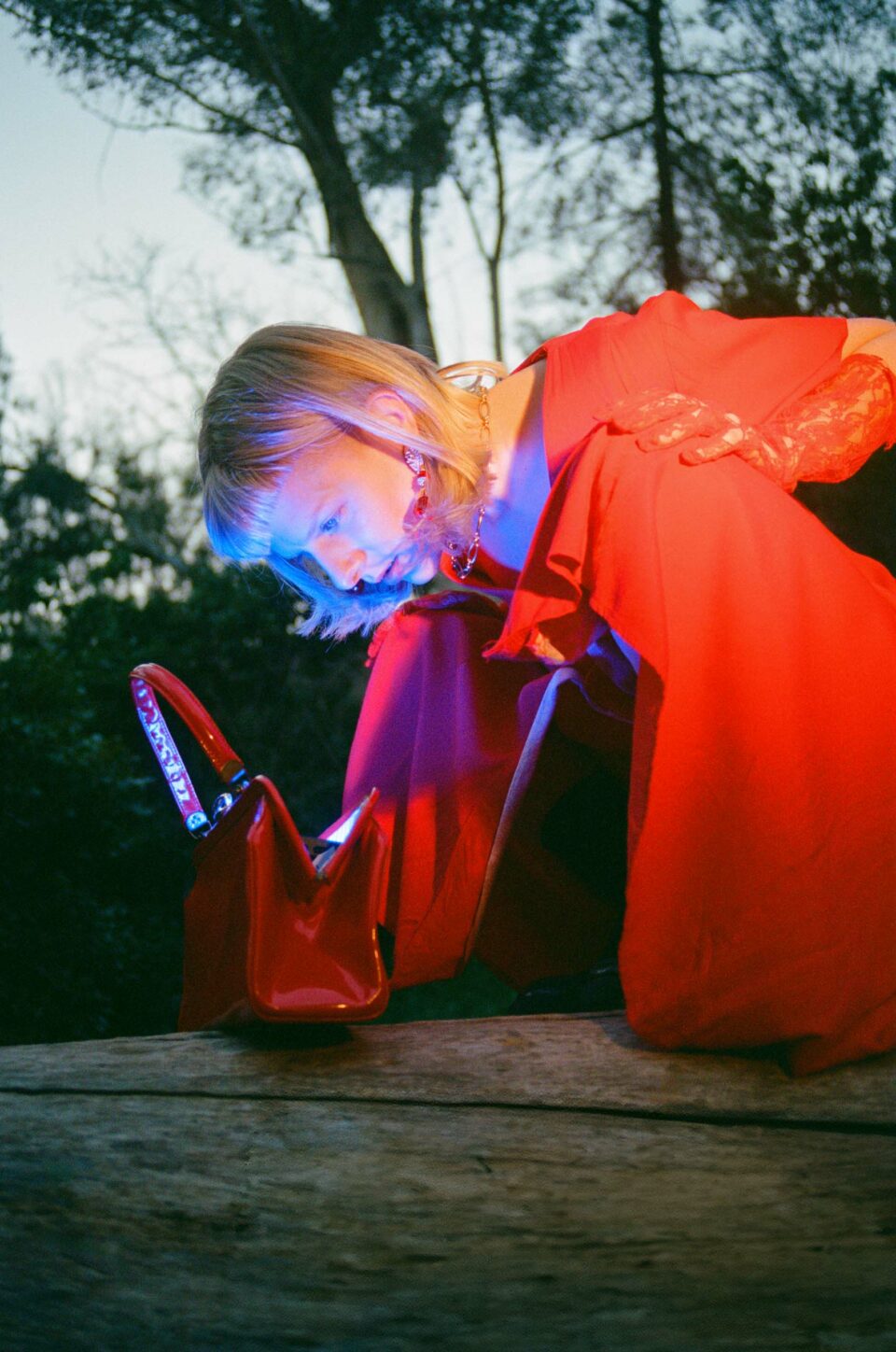
The album touches on a lot of physicality and bodily images, but it also feels incredibly rhythmic and tactile. I’m curious if you’re inspired by rhythms of bodily systems.
Yeah! I was really inspired by anatomy, especially after my last album that was so spiritual and mythological and grand. So I wanted to be quite small, very detailed and anatomical with this. I was inspired by how I imagined everything that’s within us to sound—the bones, the pulse, the blood, the breath. But also, what happens when we remove the soul from the body? When we hurt each other, we’re not looking at the soul behind the eyes that are crying. And when we hurt the planet, we’re not looking at her soul. The connection between the body and the soul, the heart and the mind, and what happens when we we remove one factor and how we bring that back—how we learn to look at strangers again, how we look at people who plead so silently for justice, and how we learn to really listen to somebody other than the loudest one in the room for a change. There’s so much between our body and our soul that’s complicated.
Anything else you’d like to add or give space to with this album?
I’m not a pessimist, even though there’s a lot of dark things about the world on my mind that inspire me to write. I’m very optimistic about people. I’m just very aware that we have to deliberately work to create hope. We can’t just wait for it to come along. I wish people dared to feel more, and that they trusted in their own logical ideas and thoughts and opinions about the world. And I wish we knew how to connect to this part of ourselves again, to dare to stand up for something. We wait for each other to do it. And I hate that we need the masses to agree with us to even dare to feel anything. Because so often, the masses can be wrong as well. FL
